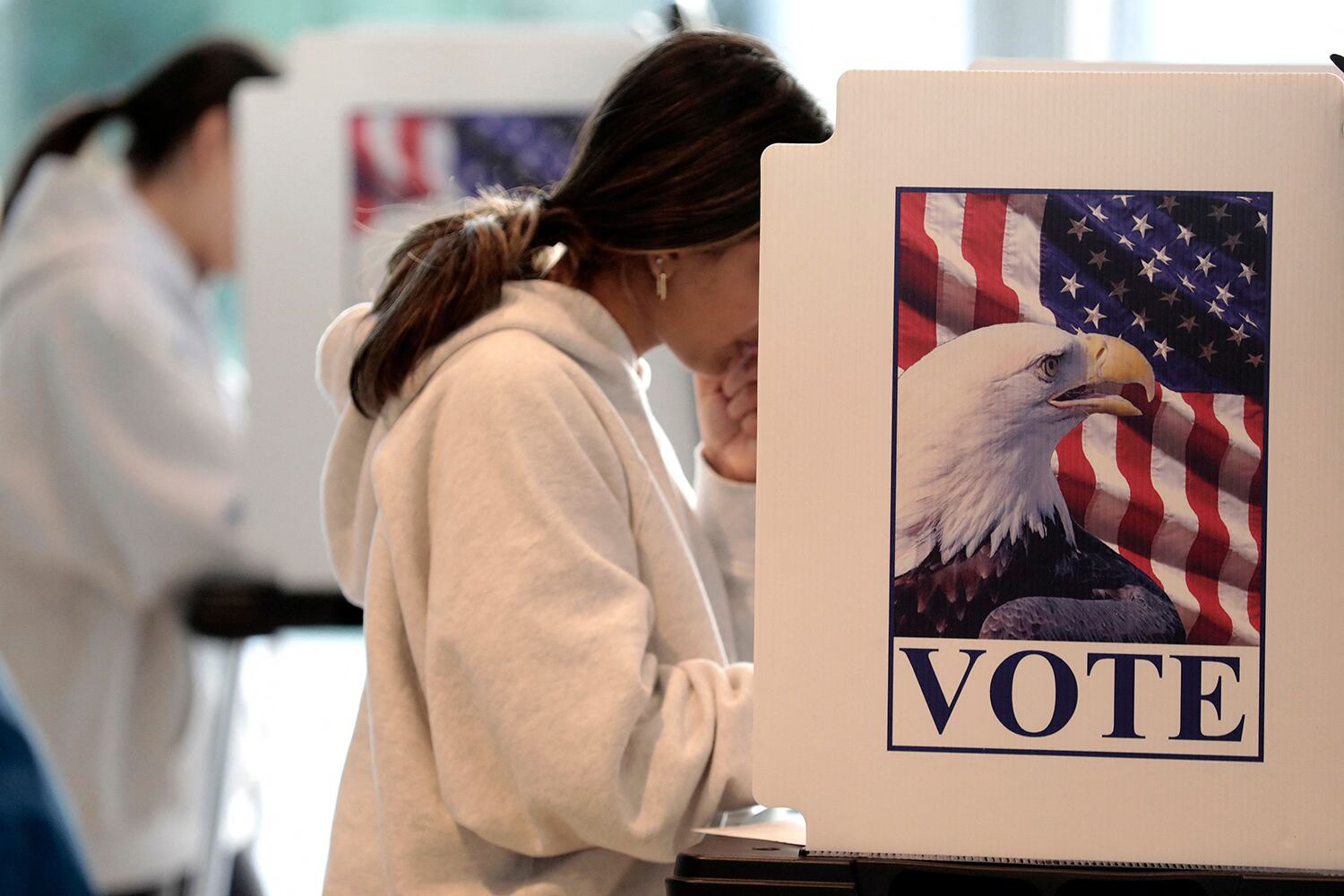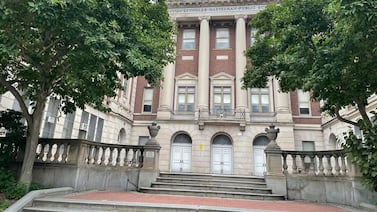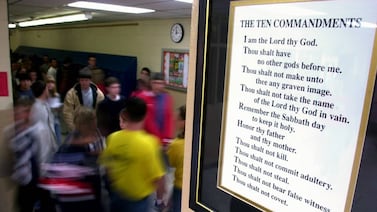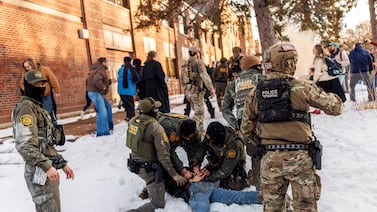Sign up for Chalkbeat Newark’s free newsletter to keep up with the city’s public school system.
The Newark City Council is set to vote Wednesday on a proposal to lower the voting age from 18 to 16 for school board races, where voter turnout has hovered around 3% for the last few years.
The ordinance, first proposed at a council meeting on Dec. 20, would take effect in time for the upcoming April election. Council President LaMonica McIver sponsored the measure, which passed the first reading at that meeting. It’s up for a public hearing and final vote at the council meeting on Wednesday at 12:30 p.m. in the council chambers at city hall.
“We need to make sure that the young people, our children, and the children coming behind us have a voice,” said McIver after the council took a first vote in favor of the ordinance last month. “We should be putting them closer to the decision-making table for the policies that directly impact them.”
The proposed measure comes on the heels of a new law that Gov. Phil Murphy recently signed to allow 17-year-olds to vote in primary elections if they are registered and turning 18 by the general election, starting in 2026.
During Murphy’s annual State of the State address on Tuesday, where he outlined his legislative priorities for the year, he said he wants state lawmakers to send him a bill that would expand voting rights for 16- and 17-year-olds statewide to vote in local school board elections.
If the Newark City Council approves the measure on Wednesday, Newark would become the first city in New Jersey to move the minimum voting age to 16 in school board elections.
Newark Mayor Ras Baraka backs the measure and believes it will give Newark youth a “strong sense of their own agency,” he said in an emailed statement on Tuesday.
“I fully support helping them establish civic responsibility at an early age and begin a lifetime habit of exercising this critical and powerful right,” Baraka said.
Nationally, there are signs that more local and state governments are looking to expand voting rights to 16- and 17-year-olds.
The city would join a handful of other municipalities throughout the country that have done the same for school board or local elections in recent years, from Berkeley, California to Takoma Park, Maryland, according to the National Youth Rights Association.
“The unfortunate reality is that voter turnout, especially in non-federal elections remains alarmingly low,” said Micauri Vargas, an associate counsel at the New Jersey Institute for Social Justice who spoke in support of the ordinance at the December meeting. “One bold solution lies in the empowerment of our youth, the very individuals directly affected by the decisions made by the school boards.”
Vargas added that the New Jersey Constitution doesn’t prohibit voting under the age of 18 and local governments in the state have the authority to set the voting age for local races.
Historically, voter turnout for the annual school board race has been low in Newark. In the last three school board elections, which are held annually in April, turnout has been around 3%.
Expanding voting rights to roughly 7,300 of Newark’s 16- and 17-year-olds could allow for more participation in the school board elections, supporters of the new rule said at the meeting.
“These young people deserve strong advocates on their school boards. Why not let them help choose who they will be?” said Ryan Haygood, president and chief executive officer of the New Jersey Institute for Social Justice.
With such low voter turnout in Newark, “we know that they cannot rely entirely on other people alone to do that for them,” added Haygood, who lives in the city and has two teenagers.
Haygood and other advocates said they would collaborate with government and school officials to put together a civics curriculum for high school students as part of an effort to bring awareness to the new measure and maximize turnout if it passes during the final vote on Wednesday.
Deborah Smith-Gregory, president of the Newark NAACP, spoke at the Newark school board meeting in December and said the organization would step in to help engage students on civic duties. She added that a city high school student told her that if the voting age is lowered “without civics education, it’s not going to be effective.”
Catherine Carrera is the bureau chief for Chalkbeat Newark. Reach Catherine at ccarrera@chalkbeat.org.






